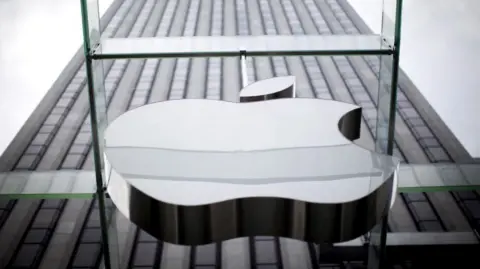Apple Inc. is currently embroiled in a legal challenge that could have profound implications for its App Store, which has been a crucial revenue stream for the company. The situation escalated following a recent ruling by U.S. District Judge Yvonne Gonzalez Rogers, who found that Apple willfully violated a prior court order related to its business practices. This order is part of an ongoing legal battle that originated from a case filed by Epic Games, the company behind the popular game Fortnite. The ruling is not merely a legal technicality; it strikes at the heart of how Apple operates within the highly lucrative app ecosystem.
Judge Gonzalez Rogers had previously mandated Apple to cease anti-competitive practices within its App Store and to allow developers the freedom to offer alternative payment options, which could potentially bypass Apple’s 30% commission fee on in-app purchases. Apple’s refusal to fully comply with these requirements led to her recent contempt ruling. In her findings, she noted that internal company documents indicated Apple had intentionally chosen paths designed to flout her previous injunction. Apple, in response, has characterized the ruling as “extraordinary,” contesting the basis of the contempt finding, and emphasizing the necessity for the company to maintain control over its core business operations.
In its appeal, Apple asserts that the order encroaches on its rights to decide how to manage its services and products. Apple’s legal team argues that a federal court cannot compel the company to provide unfettered access to its intellectual property or business practices that it considers vital for maintaining its competitive advantage. Furthermore, Apple claims that the judge’s order could result in substantial financial losses as it forces them to forego fees for purchases made outside the App Store.
The legal disputes trace back to Epic Games’ 2020 antitrust case against Apple. Epic accused Apple of exploiting its market power to impose an illegal monopoly through its App Store policies, which compel developers to pay hefty commissions on in-app transactions. While the judge dismissed Epic’s monopoly claims, she did acknowledge that Apple was engaging in practices that hindered competition by restricting developers from directing users to alternative payment methods. As part of her ruling, she required Apple to implement mechanisms that would facilitate such alternatives, pushing for a more competitive landscape.
However, Epic Game’s ongoing allegations suggest that Apple has failed to comply effectively with these mandates by instead introducing a new structure of fees aimed at developers. Judge Gonzalez Rogers’ contempt ruling included a strong admonition of Apple executives, specifically citing how CEO Tim Cook disregarded advice from key company leaders concerning compliance with the court order. Her critique underlined a perception that Apple was not just casually neglecting the order but was actively choosing to prioritize its profitability over compliance with legal mandates.
In response to Gonzalez Rogers’ most recent ruling, Apple stated that it intends to comply with the order while also pursuing its appeal. This is an unusual undertaking for a company of its stature, indicating the significant stakes involved. Apple’s legal maneuvers will determine not just its operational strategies but also set a precedent for how tech companies engage with developers and manage regulatory responsibilities in the competitive tech landscape.
As the hearings continue, the tech industry watches closely, recognizing that the outcome could reshape the business operations of Apple and, more broadly, the practices governing app marketplaces. The ruling could potentially change the dynamics of app distribution, consumer choice, and developer compensation, heralding a shift in the digital economy. This case emphasizes a broader conversation about competition, monopolistic practices, and the regulatory frameworks needed to ensure a fair marketplace for technology firms, developers, and consumers alike. As new developments unfold, stakeholders will be eager to learn how Apple navigates the complex intersection of technology, law, and business ethics.



